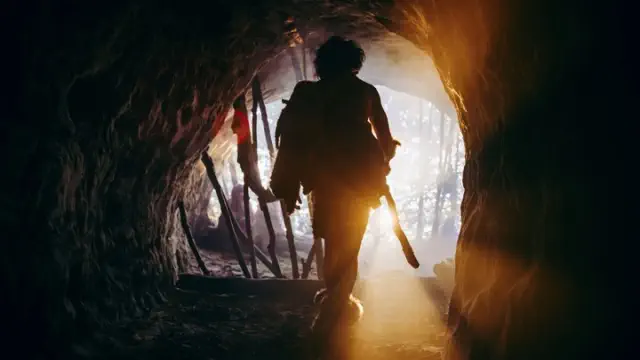Our prehistoric hunter-gatherer ancestors might have sought out optimal sleep conditions.
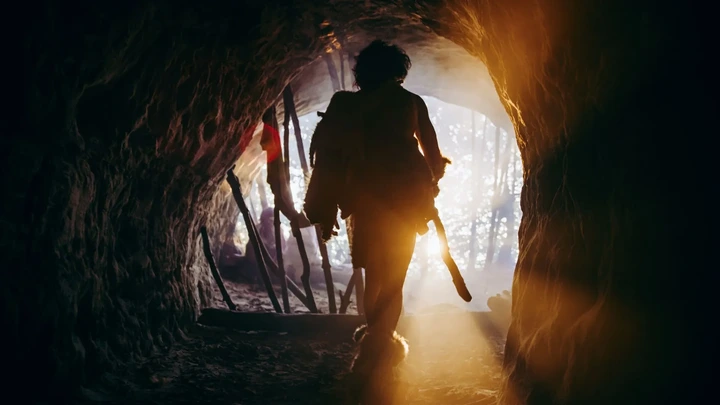
View pictures in App save up to 80% data.
Prehistoric Homo sapiens are believed to have roamed the Earth between 230,000 and 300,000 years ago, and just like us today, they sought out a restful night's sleep. Interestingly, unlike countless modern office workers, they may have been more successful in achieving it. Could cavemen provide us with valuable insights on improving our sleep quality?
In his latest book, "How to Sleep Like A Caveman," sleep therapist and part-time insomniac Dr. Merijn van de Laar suggests a unique approach to improving sleep quality. By merging research on Paleolithic sleeping patterns with the habits of contemporary hunter-gatherer societies, Dr. van de Laar believes that adopting elements of the Paleolithic way of life could provide valuable strategies for achieving better sleep in today's world.
Main highlights
- Our sleep has evolved from the habits of prehistoric ancestors
- Active lifestyle of cave dwellers contributed to their good sleep
- Modern pressures around sleep might be harming our rest
"How to Sleep Like a Caveman: Ancient Wisdom for a Better Night's Rest" by Dr. Marijn van de Laar explores the sleep habits of Paleolithic humans, and how we might be able to pick up some sleep tips from our early ancestors.
The existence of prehistoric Homo sapiens differed from ours in numerous aspects, yet in terms of sleep, we exhibited some comparable behaviors — quite literally. Early humans generally went to sleep as the moon rose and woke up with the sunrise, and adhering to the natural cycles of the day could be a significant factor contributing to their quality of sleep.
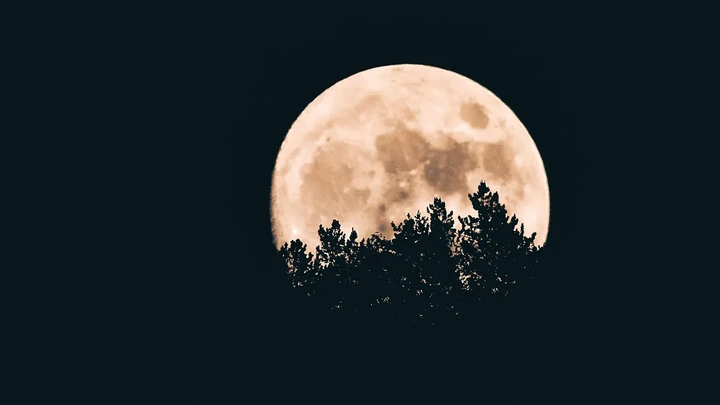
View pictures in App save up to 80% data.
Although pre-history may not seem like a source for sleep tips, the hectic lifestyle of early humans shares similarities with contemporary sleep recommendations. Dr. van de Laar suggests that embracing certain Paleolithic practices, such as starting the day with physical activity and steering clear of sugar at night, could enhance the sleep quality of today’s office workers.
But we do have one major advantage over cavemen: the mattress. Choosing the best mattress for your sleep style can help make the hours in bed count, supporting your body for better, restorative sleep. And you don't have to drag your mattress home on a giant sloth either, as the best mattresses in a box come straight to your door.
Why prehistoric humans enjoyed restful sleep — and how you can achieve it too.
Although certain sleep strategies from cavemen may not be relevant in today's world (despite the fact that chasing a mammoth would undoubtedly wear anyone out), there are valuable lessons we can glean from how our ancient ancestors prioritized rest...
Without office jobs, traffic jams and Chinese takeaways on demand, it’s no surprise that cavemen moved around more than us. This frequent exercise meant that by the time a cave dweller crawled onto the prehistoric equivalent of the best hybrid mattress, their body really needed the recovery time.
While busy lifestyles ensure it's hard to hit the many miles of walking a caveman might have achieved in one day, regular exercise can help us sleep better. And, like cavemen, research suggests you might also benefit from exercising outdoors. Aim to fit some walking into your day when possible, or enjoy some light exercise in the evening to help you sleep.
2. The influence of light and warmth on circadian rhythms
Or, perhaps, it would be more accurate to say that our circadian rhythms developed around the light cycle that cavemen (and their ancestors) were naturally exposed to. Getting light during the day and darkness at night helps you sleep better, and that's something cave dwellers would have struggled to avoid.
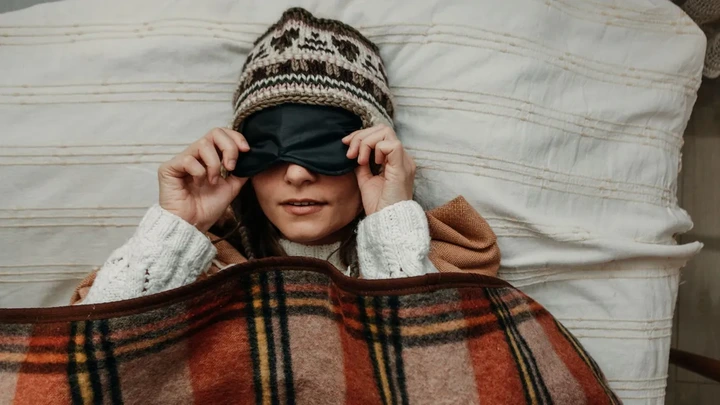
View pictures in App save up to 80% data.
With electric lightbulbs and glaring phone screens, many of us end up accidentally confusing our circadian rhythms. The easiest way to get your internal body clock back in sync is to open the curtains first thing in the morning and dim the lights in the evening. (A good eye mask can also help.)
Dr. van de Laar suggests heat also played a role in the healthy sleep habits of early humans. Our bodies cool as we get sleepy, in time with the natural cooling from day to night. Cozy bedrooms, unlike chilly caves, can work against this. The best cooling mattresses help very hot sleepers maintain a lower temperature overnight — but for some of us, it’s as simple as turning the thermostat down a notch.
3. Avoid sugar prior to bedtime.
...and, overall, very little sugar in general. Cavemen diets were largely low sugar and Paleolithic humans certainly wouldn't have indulged in a late night donut. Studies have linked increased sugar consumption to disturbed rest, which is bad news if you like a sweet treat as a midnight snack.
In general, it's best to avoid eating too close to bedtime (the 10-3-2-1-0 sleep rule recommends no food three hours before bed). But there are some sleep-healthy foods you can snack on, such as cavemen-approved proteins and sunflower seeds.
We all wake up in the night, but most of these awakenings are so short lived we don’t even realize they're happening. Longer nighttime waking tend to be a source of stress for the modern human, but a cave dweller is likely to have just shrugged it off.
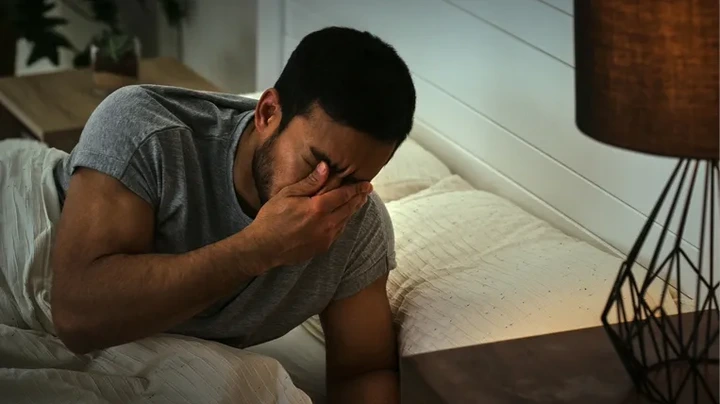
View pictures in App save up to 80% data.
Studies suggest that before the Industrial Age, it was much more common to sleep in two shifts during one night. Dr. van de Laar proposes this segmented sleep was used to aid survival, as whoever was awake could keep an eye out for threats.
Although you probably don't have to rise at 3am to watch for sabre-toothed tigers, it's common for many people to wake up after just a few hours of sleep. Rather than tossing and turning in bed, consider getting up, stretching a bit, and engaging in a relaxing activity like reading a book. Once you begin to feel drowsy again, head back to bed.
5. Reduced sleep-related stress
Many of us worry about achieving the magical eight hours sleep. But Dr. van de Laar suggests that one of the reasons cavemen could sleep well is they weren't stressing over just how much rest they got.
So how do we avoid stressing about sleep? Understanding your sleep chronotype can help you find a bedtime and wake-up time that works for you (cavemen had to rely on their body clock, not an alarm clock.)
Practicing good sleep hygiene can also help you fall asleep faster. And if you do have a bad night's sleep, don't see it as a failure — it happens. After all, we can't rule out cavemen spending the occasional night staring at the stars, lamenting 'why Grug no sleep?'
